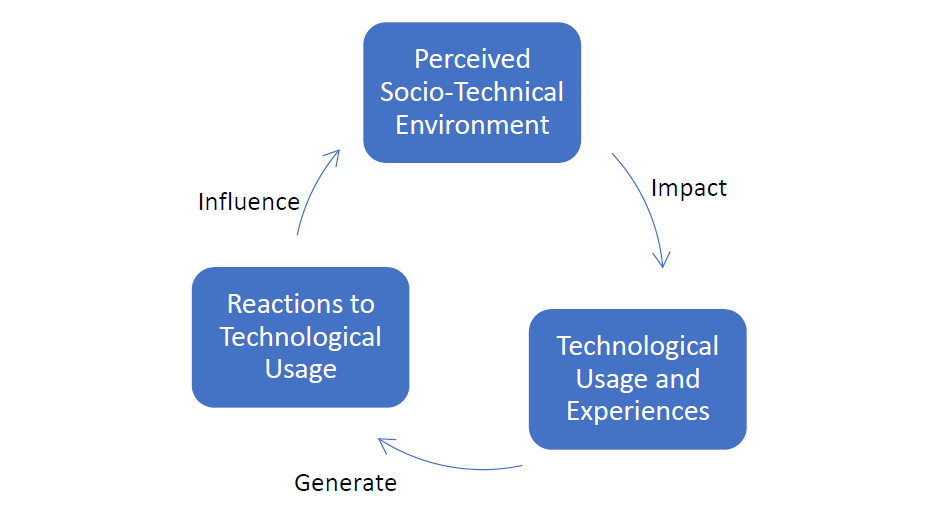A research paper on technology usage by children and digital maturity will be presented by the EU-funded DIGYMATEX Project at the 30th European Conference on Information Systems – ECIS 2022, which will be held on 18-24 June, 2022, in Timisoara, Romania.
The research will be presented by DIGYMATEX partners Alvaro Arenas and Pouye Yazdi from IE Business School, Department of Information Systems and Technology.
The research conducted by Arenas and Yazdi is based on data collected in five focus groups with 20 Spanish children. Applying grounded theory method, they developed a model of technology usage comprising three main elements: perceived socio-technical environment, technology usage and experiences, and reactions to technology usage. Perceived socio-technical environment refers to how children perceive technology, in particular benefits and risks in the use of technology as well as their understanding and awareness of technology.
Technology usage and experiences encompass how children use technology, tensions they feel when using technology, and how they interact with parents and adults in relation to the use of technology. Reactions to technology usage include emotional responses, digital civic behaviour such as responsibility in the use of technology, digital risk prevention, and respect for others.
The model shows a cycle in which usage of technology generates some reactions that may have positive or negative impact on children, and that influence children’s perception of their socio-technical environment; in addition, the socio-technical environment may impact technology usage, completing the cycle.
By using this model, one can examine how children reacts to the use of technology, and how their socio-technical environment, usage experiences and reactions evolve over time.
For instance, one of the teenage girls interviewed in the focus group mentioned her experience using the Instagram app and how evolved over time; she started using the app to connect with friends (perceived benefits), following a hedonistic usage, and a pattern of using with some periodicity, which triggered some emotional responses such enjoyment; over time, she noticed she was overusing the app (perceived risks), which generate some tension in her and triggered some negative emotional responses such as anxiety.
This article reports initial work carried out in the context of the DIGYMATEX project, which aims at generating an index and measurable constructs related to digital maturity in children.
Future work avenues include contrasting these results with other versions of digital maturity resulting from the literature and from work by other members of the consortium, targeting at having a holistic and multidisciplinary view of the concept of digital maturity.
Another line of research is related to further analyses the model using two theoretical lenses: the technology appropriation model, focusing on how fit for children some digital technologies are, and the information systems continuance theory, focusing on the continuance usage of technology by children.
Previous work has shown that the situational context can be central to the continuance use of information systems, so an interesting line of enquire is to study the relation between the perceived socio-technical environment and the technology usage and experiences that children have.


